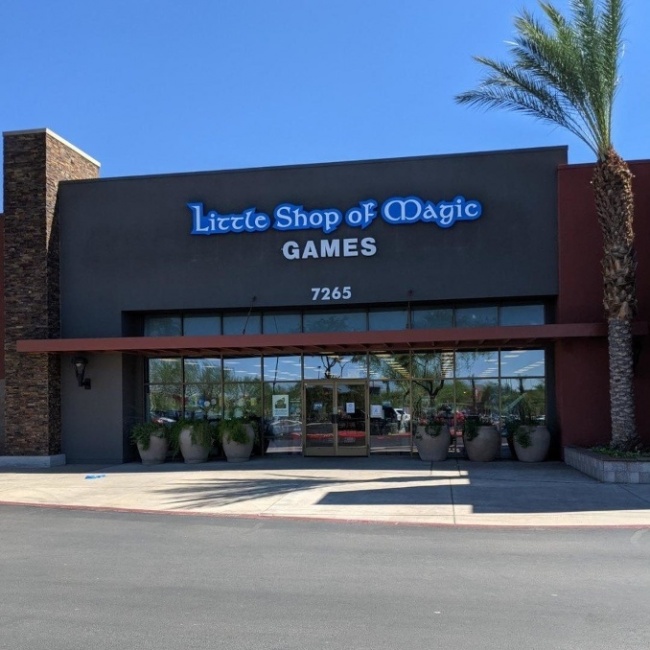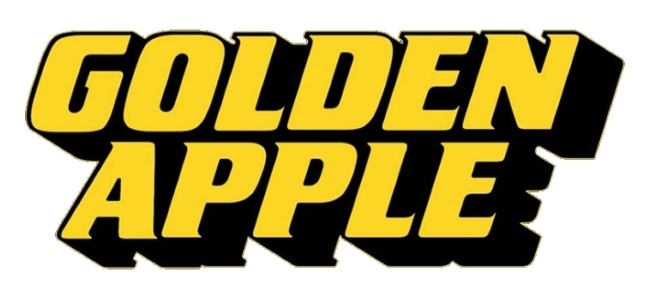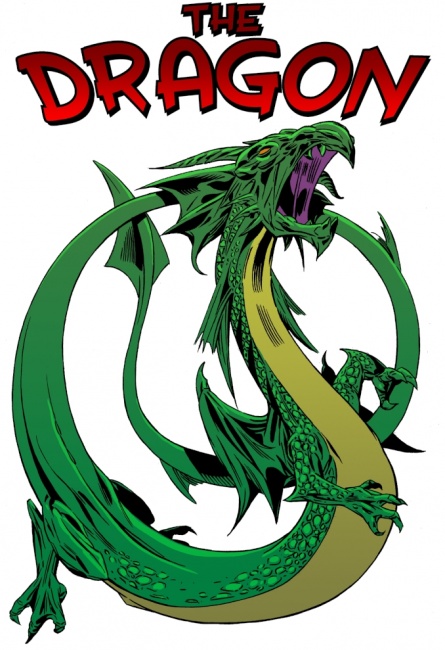Pick up a paper or turn on the news and the “tight labor market” is making headlines. Comic and game specialty stores are just that: specialty, with specialized labor needed. In a world where McDonald’s is hiring at $17 an hour in Duluth, Minnesota (really!), the cost of labor is a concern, but just finding the right people may be even tougher, and labor considerations are only getting trickier as we turn the page into 2022.
Need an example? Check out the website for Little Shop of Magic in Las Vegas. There’s an “employment” link right at the top of the page.
“I’m hungry for hiring people,” says owner John Coviello. “We look at every application, right as it comes in. I just hired four seasonal workers for Christmas, and we’ll see how they look for permanent employment after January. And I want to hire four more after that in January.”
Coviello’s luck—welcome to Vegas!—runs hot and cold. His store has long been the largest in Nevada, and he just moved to an even larger location in July. He’s in a major shopping center with a Walmart and a Best Buy, so main street customers who need hand-holding are just as common as hardcore gamers. That taxes his staff, and Coviello, alas, is part of that staff.
“There was a time I was working 9 to 5, Monday through Friday,” he says. “But I’m now six days a week, 10-12 hours a day. I spend most of my time now doing entry-level work, ringing up and helping customers, because I don’t have the staff. And that’s to the detriment of my business. I’m not maximizing order potential, handling accounting. My time is not very productive time right now.”
Coviello knows it takes a certain kind of person to work specialty retail.
“It’s always been difficult for a game store,” he says. “People have to have a passion for it, be geeky enough for what we sell. I can’t teach them all of it.”
Las Vegas has a minimum wage of $8.75 an hour if an employer offers health benefits; $9.75 if not. Coviello is typically starting people at $11-$12, and hoping to keep them with more after 90 days.
Travel 270 miles from Vegas to Los Angeles, and Ryan Liebowitz of the venerable Golden Apple Comics deals with a higher-cost labor market—$15 an hour minimum wage—but fortunately, no shortage.
“There’s an abundance of people who want to work,” Liebowitz says. “Now had you asked me this question a year or so ago, mid-first pandemic scare, absolutely we were short. People were making more money on unemployment and were safer, too; they didn’t have to interact with the public.”
And of course, during the pandemic, collectibles markets soared and demand for mail order exploded. This super-heated Liebowitz’s business to the point where he had to add warehouse space and a dedicated warehouse staff. Golden Apple now has 14 employees, divided evenly between store and warehouse.
Liebowitz considers himself lucky and says he’s made “some amazing hires over the past few months. This might be the strongest staff I’ve ever had.” He scratches his head at having to start people at $15 or more (“That’s a lot for a comic book clerking job.”), but knows it’s baked into his bigger business.
“Business is good, sales are good,” he says. “We picked up new readers who were stuck at home during the pandemic, and we’ve kept them. So I guess it’s justified—pay people a little more, at least what the government tells us to.”
Liebowitz now considers his main task trying to work smarter, not harder, himself.
“I’m a little more hands-on here in-store than I’d like to be, but… I have the most tremendous amount of Jewish guilt staying home and working!” he says. “I’m constantly checking in, making sure everything’s okay. I’m always, ‘You guys, I would come in today, but I have 100 things going on behind the scenes!’”
Liebowitz says he’s more efficient working from home, ordering, coordinating events and promotions, contacting creators and publishers for signings, and more.
“I can get 10 times more work done at home,” he says.
Jenn Haines has that strategy down pat. Haines owns The Dragon, a chain of three comic and game stores in and around Guelph, Ontario, run with a simple philosophy.
“I always say as an owner, ‘You should be working on your business; not in your business,’” she says. “I almost never work in the store now. I’m so busy doing the big picture stuff—accounting, marketing strategies, projections, setting schedule, running payroll, all the ordering.”
Ontario has a minimum wage of $14.35 an hour, but Haines has little problem finding people. She just brought in two seasonal employees for expanded holiday hours.
“There’s a real desire to work in a store like this,” she says. “Before COVID, I would post for a job and get 120 applications. The last round I posted for in September, I only received about 50 applications. It’s tighter from that perspective, but… I still received 50 applications.”
Haines tries to sort her staff very specifically as well, with at least one woman in store at all times o that female customers can “see themselves” reflected in the staff.
“It’s not always possible, but I’m always very mindful of trying to accomplish it,” she says. “I’ll cover a shift myself sometimes when I have to.”
And Haines is blessed in having long-term staff. Before the recent September hires, her shortest-tenured staffer was at 2+ years. She also has a 21-year employee. Haines works hard to keep her staff, and says a key is genuinely listening to employee feedback, allowing them to have agency, and make decisions in store. Expanded health benefits help, too.
“We get great benefits from the government, but I paid for some benefits that give repayments for dental, prescriptions, some mental health pieces, and so on,” she says. “So I was able to make my staff feel a bit better, health-wise, during the stress of the pandemic.”
Ryan Higgins of Comics Conspiracy in Sunnyvale, California is yet another owner trying to meter his personal schedule. He says he puts in nearly 40 hours a week in-store, with another 20+ at home. The balance is tough.
“Despite advice from very smart people who have told me what I should be doing, I always want to be there on a Wednesday, dealing with all our best customers,” he says. “I feel too many comic store owners are too disconnected from comic books. I want to know what’s here, what’s coming out, what people are reading and liking.”
Higgins says looking at the numbers is great, but in-person gives him so much more.
“I can tell you a number of customers I talk to, on some of our best-selling books, are saying, ‘I haven’t read the last 12 issues; I just buy it,’” he says. “That becomes, ‘Mmmmm. This book, I’m keeping an eye on this number. Something’s gonna happen; this book is gonna drop.’ Or when people are asking about a book that’s not in our system yet, that book’s gonna be hot. I wouldn’t know that from just the numbers, sitting at home looking at a sales report.”
Higgins has a high-priced labor market ($16.05 minimum wage and going to $17.10 next year), but fortunately, has no problem finding people.
“We’ve always had lifers at the shop,” he says. “The literal last employee I hired to work the store I hired because a previous employee passed away.”
Higgins has also bulked up with a warehouse crew for more online sales. He hired four part-timers there, with two already morphing into full-timers, and perhaps all four. Higgins will evaluate in the new year.
And stores are already evaluating with a new eye toward security, as serial burglaries and even shootings over Pokémon cards are an unfortunate reality.
“We work on the buddy system or buddy-plus here,” Ryan Liebowitz says. “There’s never a day when there’s not at least two people working.”
Liebowitz likes the extra register coverage and service aspect, but also admits the threat of theft is ever nigh.
“We have more product these days, more high-value product, so we need more eyeballs on it,” he says. “Comics have had a resurgence. A book I used to sell for $50 is now $150. ’80s and ’90s are hot in comics. Values are 3-5 times what they were pre-pandemic.”
At Little Shop of Magic, John Coviello makes sure all his card singles are browsable in a digital catalog, and fills his display cases with proxies.
“I don’t want to have glass cabinets showing off singles, because it’s just too much of a motivator,” he says. “Even if they don’t make off with any cards, they smash my door, they smash my window, whatever. Thousands of dollars of damage.”
No matter if it’s because of security, increased business, or a flexing labor market, specialty stores are looking for a few good geeks. Now get recruiting.
For photos of the under-construction Little House of Magic store, click Gallery below!
Source: ICv2





